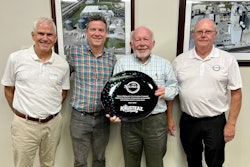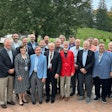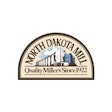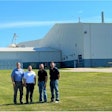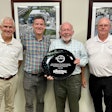
On October 13, a federal jury in Madison, Wisconsin, convicted current and former Didion Milling Inc. officials of workplace safety, environmental, fraud and obstruction of justice charges following a deadly explosion at its corn mill in Cambria, Wisconsin.
The May 2017 explosion killed five workers and seriously injured others.
- Didion Milling vice president of operations Derrick Clark was convicted of conspiring to falsify documents, making false Clean Air Act compliance certifications as Didion’s “responsible official” and obstructing the OSHA investigation of the explosion at the corn mill by making false and misleading statements during a deposition.
- Former Didion Milling food safety superintendent Shawn Mesner was convicted of participating in a fraud conspiracy against Didion Milling’s customers and conspiring to obstruct and mislead OSHA for his role in falsifying sanitation records used at Didion to track the completion of cleanings designed to remove accumulations of corn dust at the mill.
- The jury also acquitted former Didion Milling environmental manager James Lenz of charges relating to falsifying environmental records and conspiring to make false statements and obstruct agency proceedings.
Sentencing hearings for each of the defendants will be scheduled at a later date.
“The trial and convictions in this case show that compliance matters, and attempting to hide noncompliance, is not just a ‘technical’ violation,” said Todd Kim, assistant attorney general of the Justice Department’s Environment and Natural Resources Division (ENRD). “Managers and officers who enable corporate cultures that tolerate, encourage or cover up violations, and who participate in falsifying documents and obstructing agency investigations, will and must be held accountable in addition to the corporations.”
According to the DOJ, Didion Milling maintained its master sanitation schedule to record the performance of required cleanings. Clark and Mesner were convicted of participating in a conspiracy to falsify that cleaning log, including directing others to backfill entries for uncompleted cleanings.
False and misleading testimony after explosion
Federal law gives OSHA six months to gather facts and issue appropriate citations after a safety violation occurrence. In matters involving worker deaths, evidence that corporate managers knew about violations can result in issuance of a “willful” citation and a criminal referral.
The DOJ reported that OSHA subpoenaed Clark’s testimony in September 2017 during the corn mill explosion fatality investigation. Clark gave false and misleading testimony about his knowledge of problems with the dust collection system at Didion’s corn mill, his knowledge of explosion hazards and his knowledge of prior fires at the facility.
“The tragic loss of life in this case shows the terrible consequences that can result when companies fail to implement required health, safety and environmental measures,” said David M. Uhlmann, assistant administrator of the Environmental Protection Agency’s (EPA) Office of Enforcement and Compliance Assurance.
“The convictions of Didion Milling senior managers sends a clear message that EPA and our law enforcement partners will investigate and prosecute companies that put profits above the health and safety of their workers.”
Additionally, a permit issued under the Clean Air Act required compliance by Didion Milling at its corn mill including the operation of baghouses equipment, which are designed to limit the release of particulate matter like corn dust into the environment.
The permit also required a “responsible official,” a senior manager with authority, to periodically certify the mill’s compliance with air pollution control permit conditions and disclose known permit violations. Clark falsely certified Didion’s compliance without disclosing that baghouse logs – documentation on maintenance of baghouse equipment – had been systematically falsified to conceal permit violations.
“Derrick Clark and Shawn Messner chose to intentionally mislead OSHA investigators and made false statements about their knowledge of working conditions at the plant to protect themselves and cover their mistakes,” said OSHA regional administrator Bill Donovan in Chicago. “Their blatant actions demonstrated a callous disregard for the loss of life, injuries and property damage that occurred under their leadership at the Didion Mill.
"Both Clark and Messner ignored their legal and moral obligation to protect workers before and after the explosion," added Donovan.
Falsified cleaning log to food safety auditors
Didion Milling sold its milled corn products to food and beverage manufacturers. Sanitation at food manufacturing facilities is necessary for food safety, and excessive accumulations of grain dust can cause food safety problems.
Through deceptive means, including repeatedly presenting a falsified cleaning log to food safety auditors, the DOJ said Mesner conspired to deceive Didion’s customers about its sanitation practices. As food safety superintendent, Mesner directed personnel to falsify the log to make it appear as if the cleaning schedule was being followed.
In September, Didion Milling pleaded guilty to falsifying the cleaning logs and baghouse logs at the mill and agreed to pay a criminal fine of $1 million and restitution of $10.25 million to the victims of the 2017 explosion.
Other guilty pleas from 2017 explosion
- Didion Milling shift superintendents Nicholas Booker, Michael Bright and Joel Niemeyer previously pleaded guilty to false statement charges for participating in the falsification of the cleaning logs and baghouse logs.
- Didion Milling shift superintendent Anthony Hess pleaded guilty to obstructing OSHA by making false and misleading statements about the accuracy of the cleaning log during a sworn statement taken as part of OSHA’s investigation into the mill explosion.
- Former Didion Milling environmental manager Joseph Winch previously pleaded guilty to conspiracy to conceal environmental violations from regulators by falsifying compliance certifications and providing falsified logs to regulators.




